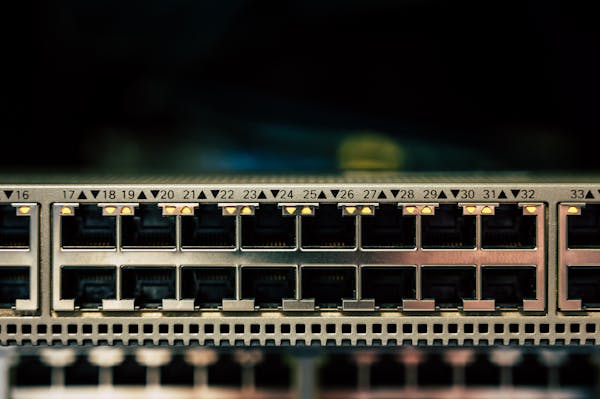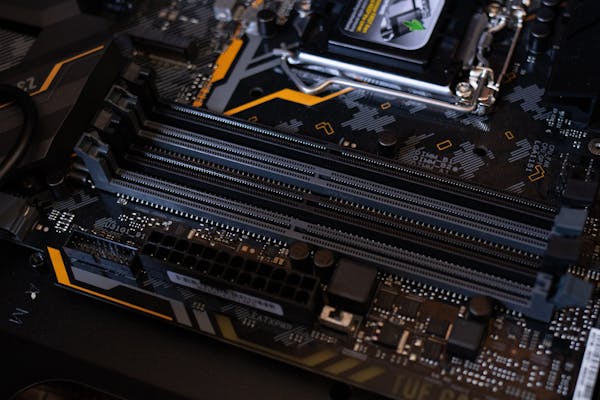Source article: click here (4G rotating proxy)

Understanding Mobile 4G Proxies
As internet privacy becomes paramount, 4G rotating proxies have gained prominence for maintaining online privacy.
An Overview of 4G Rotating Proxies
These proxies utilize cellular data connections to rotate IP addresses to users. Unlike static proxies, they rotate IPs after set intervals, enhancing anonymity.
How Do They Work?
Once initiated, the proxy server assigns a mobile IP. These IPs change after specific durations or actions, hindering surveillance.
Why Opt for 4G Rotating Proxies
- Increased Security: Dynamic IP rotation obscures user identity.
- Overcoming Location Barriers: Changing IPs facilitate unrestricted browsing.
- Minimized Blocking Risks: Frequent IP changes prevent bans.
Practical Implementations
- Information Gathering: Rotating IPs prevent scraping blocks.proxies reduce account bans.
- Marketing Research: Changing IPs monitor competitor strategies.
- o Consider}
When opting for a 4G rotating proxy, consider:
- IP Pool Size: A larger pool reduces repetition.
- Switching Mechanisms: Determine if the service offers customizable intervals.
- Geographical Coverage: Access to multiple regions broadens usability.
Limitations to Be Aware Of
- Pricing Structures: 4G proxies may be pricier compared to other types.
- Network Reliability: Mobile networks may affect consistency.
- Ethical and Legal Considerations: Ensure usage avoids illicit activities.
Summing Up
Mobile 4G proxies enhance online privacy, making them invaluable in contemporary online activities.
Understanding the Technical Mechanisms of 4G Rotating Proxies
In the realm of internet privacy, mobile 4G proxies have gained prominence for bypassing geo-restrictions.
What Are 4G Rotating Proxies?
4G rotating proxies leverage cellular data connections to assign dynamic IP addresses to users. Unlike static proxies, they rotate IPs after set intervals, reducing detection risks.
Mechanism Behind 4G Rotating Proxies
Upon connection, a dynamic IP from a mobile network is provided. These IPs rotate based on time or requests, hindering surveillance.
Why Opt for 4G Rotating Proxies
- Enhanced Anonymity: Dynamic IP rotation obscures user identity.
- Overcoming Location Barriers: Changing IPs facilitate unrestricted browsing.
- Minimized Blocking Risks: Frequent IP changes prevent bans.
Applications of 4G Rotating Proxies
- Web Scraping: Rotating IPs ensure continuous data collection.
- Social Media Management: Dynamic proxies facilitate automation.
- Ad Verification: Changing IPs validate ad placements.
Choosing the Right Proxy Service
Before selecting a provider, consider:
- IP Pool Size: A larger pool offers better rotation.
- Rotation Frequency: Determine if the service rotates per request.
- Geographical Coverage: Access to multiple regions supports diverse tasks.
Considerations Before Use
- Pricing Structures: 4G proxies can impact budgets compared to other types.
- Connection Stability: Mobile networks can be less stable.
- Compliance Issues: Ensure usage aligns with laws.
Final Thoughts
Mobile 4G proxies provide dynamic IP solutions, establishing their importance in today’s digital age.
The evolving internet ecosystem, remaining private and bypassing restrictions has become more important than ever. Affiliate marketers, agencies, and SEOs often rely on proxies to hide their IP address. Among these, 4G LTE rotating proxy servers have become a top-tier option.
What makes them better or worse than other alternatives like static proxies? Let’s break it down.
== What is a 4G Rotating Proxy?
A LTE rotating IP proxy is a proxy that uses real SIM cards connected to mobile networks. These proxies change IPs at custom timeframes or upon request, emulating human behavior and eliminating the risk of bans or blocks.
== Main Proxy Types
Let’s outline the key proxy types before comparing:
1. **Datacenter Proxies**
– Fast and affordable, but easily flagged.
2. **Residential Proxies**
– Use IPs assigned to real homes. More reliable, but slower and costlier.
3. **4G Mobile Proxies**
– Use real SIMs on LTE networks. Ideal for automation and stealth.
4. **SOCKS5 Proxies**
– Protocol-based, flexible, used for various apps, not just HTTP.
== Comparison Table
| Feature | 4G Rotating Proxies | Datacenter Proxies | Residential Proxies | SOCKS5 Proxies |
|————————|———————|———————|———————|—————-|
| IP Source | Mobile Network (SIM)| Data Centers | Home IPs | Varies |
| Rotation | Yes (Frequent) | Sometimes | Optional | Manual |
| Ban Resistance | High | Low | Medium | Depends |
| Speed | Medium | High | Low-Medium | High |
| Price | High | Low | Medium | Low-Medium |
| Target Use | Social, Ads, Bots | General Scraping | E-commerce, Research| General |
| Block Detection | Low | High | Medium | Medium |
== Technical Advantages of 4G Rotating Proxies
Why are 4G proxies so powerful?
– **Real Device Trust**: Websites trust mobile IPs more than others due to carrier NAT and wide user pools.
– **Shared Reputation**: IPs are shared across many users, making banning a single user risky.
– **Geo-targeted Mobile Carriers**: Rotate between networks in real U.S. cities or countries.
– **Dynamic Rotation**: Can rotate every few minutes or after each request.
– **Bypasses Captchas**: Mobile IPs are less likely to trigger captchas or challenge verifications.
== Where 4G Proxies Win
Let’s cut to the chase— if you’re doing social media automation, nothing works better than a solid 4G proxy.
– Facebook and Reddit limit data center abuse.
– Web scraping? You’ll trigger fewer blocks.
– Ads management across banned zones? Done.
== Where They Fall Short
– **Cost**: They’re not cheap.
– **Speed**: Slower than static datacenter options.
– **Limited Threads**: Some providers limit concurrent usage.
== SOCKS5 vs 4G: Protocol vs Behavior
SOCKS5 proxies are great tools. But they don’t have native rotation.

| Attribute | 4G Proxy | SOCKS5 Proxy |
|———————|——————–|——————–|
| Protocol Type | HTTP/HTTPS | SOCKS5 (All apps) |
| Rotation | Yes | Manual |
| IP Trust Level | Very High | Medium |
| Use Cases | Social, Ads, Bots | Torrenting, Apps |
== Use Cases Side-by-Side
**4G Rotating Proxies:**
– Social Media Management
– Mobile Ad Verification
– SEO Scraping
– Sneaker Bots / E-com Testing
– Marketplace Automation
**Datacenter Proxies:**
– High-volume scraping (non-sensitive)
– Speed-demanding tasks
– Price-conscious campaigns
**Residential Proxies:**
– E-com price intelligence
– Research tools
– CAPTCHA-heavy targets
**SOCKS5 Proxies:**
– Application-level traffic routing
– Anonymity over torrents
– Bypassing firewalls
== How to Choose the Right One?
Each proxy has a time and place. Here’s how to choose:
– Need speed? Go datacenter.
– Need trust and stealth? Go 4G mobile.
– Need app-level routing? Go SOCKS5.
– Need wide IP pools without rotation? Try residential.
== Future of 4G Rotating Proxies
With AI detection systems growing smarter, only carrier networks are keeping up. We’re seeing:
– 5G proxy rollouts in testing
– Smarter rotation algorithms
– Integration with automation platforms like Jarvee, NextPost, Puppeteer
== Final Verdict
If stealth matters, LTE proxies are your best bet. For any campaign that’s stealth-heavy or bot-powered, it’s worth the investment.
== Spintax Conclusion
So, whether you’re an agency scaling campaigns, investing in the right proxy is not optional anymore.
4G rotating proxies may cost more, but the results speak for themselves.
https://www.fortinet.com/resources/cyberglossary/proxy-server
https://en.wikipedia.org/wiki/Proxy_server
https://support.microsoft.com/en-us/windows/use-a-proxy-server-in-windows-03096c53-0554-4ffe-b6ab-8b1deee8dae1
https://www.reddit.com/r/explainlikeimfive/comments/1dfgepb/eli5_what_is_a_proxy_server_and_why_would_i_as_an/
https://surfshark.com/blog/proxy-server













